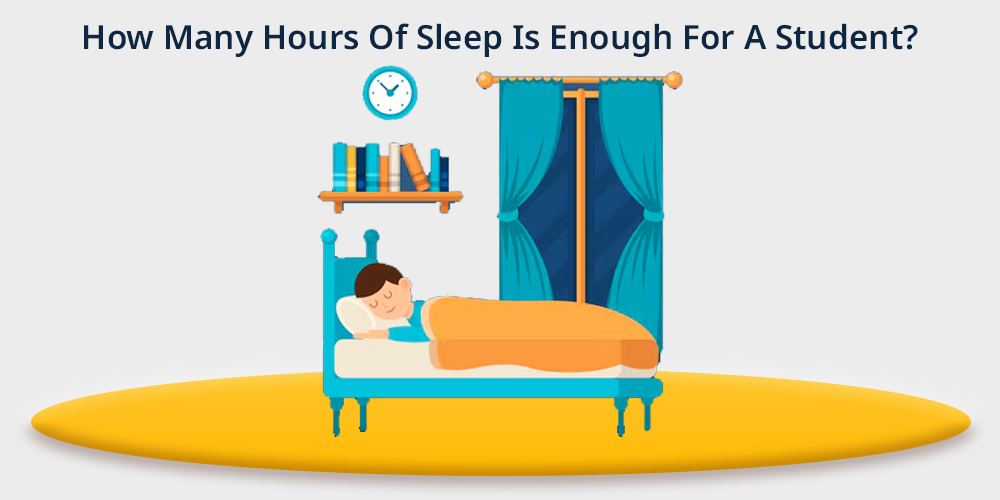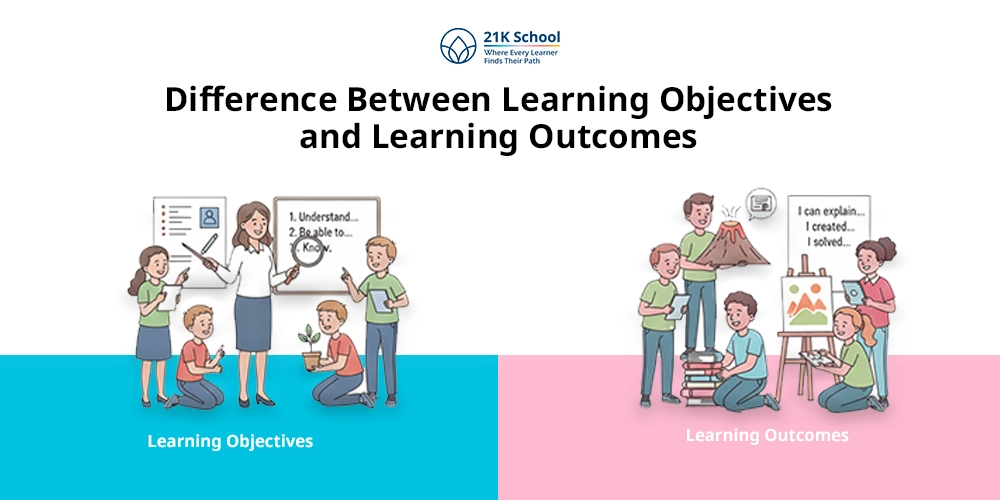
Have you ever wondered why good sleep is essential for students?
A good sleep is essential to develop a healthy mind and boost cognitive abilities among students. Proper sleep is essential among children.
The Indian population faces many sleep problems, such as insomnia, sleep disorders, sleep deprivation, etc.
According to a report, 33% of the Indian population suffers from sleep-related problems. India is considered the second most sleep disordered country in the world after Japan. As per the study, 8.6% of young children take 30 to 40 minutes to fall asleep.
A good sleep of 8 to 10 hours daily is very important for a fresh mind and health. Good sleep helps in reducing stress, depression, and anxiety and also improves concentration levels among children as well as adults.
Building a proper sleeping habit from childhood helps in developing the sleeping routine that will enhance the quality of life.
Contents
- The Vital Importance of Sleep for Students
- The Crucial Role of Sleep in Student Success
- Benefits of Sufficient Sleep
- Consequences of Sleep Deprivation
- Facts and Figures Related to Sleep Hours among Students
- What are the Steps to Get Good Sleep?
- How Many Hours of Sleep Are Essential for Children?
- Conclusion
The Vital Importance of Sleep for Students
Adequate sleep is fundamental for students’ overall well-being, cognitive development, and academic success.
In India, sleep-related issues are prevalent, with approximately 33% of the population experiencing sleep disturbances, making it the second most sleep-deprived country globally after Japan.
Alarmingly, 8.6% of young children take 30 to 40 minutes to fall asleep, indicating widespread sleep challenges among the youth
The Crucial Role of Sleep in Student Success
Adequate sleep is fundamental to students’ health, cognitive function, and academic performance.
Quality sleep enhances concentration, memory, and mental agility, all of which are essential for effective learning and overall well-being.
Benefits of Sufficient Sleep
- Enhanced Memory and Learning: During deep sleep stages, the brain consolidates new information, strengthening memory and facilitating learning. Studies indicate that even an additional 15 minutes of sleep can significantly improve cognitive performance in children.
- Improved Cognitive Abilities: Adequate sleep supports critical thinking, problem-solving, and creativity. It also fosters emotional regulation, reducing stress and anxiety levels.
- Physical Health Benefits: Consistent sleep patterns contribute to better immune function, reduced inflammation, and a lower risk of chronic conditions such as obesity and hypertension.
Consequences of Sleep Deprivation
Lack of sufficient sleep can lead to:
- Diminished attention span and focus
- Impaired memory retention and recall
- Increased susceptibility to stress and anxiety
- Higher risk of accidents and injuries
- Decline in academic performance and cognitive function
A sleep of 8 to 10 hours is essential for young kids to enhance their attention and learning adaptability.
Proper sleep helps in developing problem-solving abilities, critical thinking, and visualization and also enhances brain connectivity.
In the 21st century, young children are becoming more like night owls, as the majority of students are used to staying awake at night or their hectic study schedule allows them to stay up at night.
A proper bedtime routine is important for a children to get effective benefits.
Facts and Figures Related to Sleep Hours among Students
Recommended Sleep Duration by Age
| Age Group | Recommended Sleep Duration (per 24 hours) |
| Infants (4–12 months) | 12–16 hours (including naps) |
| Toddlers (1–2 years) | 11–14 hours (including naps) |
| Preschoolers (3–5 years) | 10–13 hours (including naps) |
| School-age (6–12 years) | 9–12 hours |
| Teenagers (13–18 years) | 8–10 hours |
These recommendations are based on extensive research and expert consensus to promote optimal health and development in children.
Sleep deprivation has become an essential part of every student. Around 70% of students don’t get adequate sleep, and more than 18% of students only sleep for 3 to 5 hours a day. Even during exam time, children get very little time to get proper sleep.
Inadequate sleep, an unhealthy lifestyle, and less social activity increase anxiety and anger during exams.
Below, you can check the detailed sleep patterns of students during exam time.
| Sleep Hours of Students | Percentage of Students |
| 5 to 7 hours | 53% |
| 3 to 5 hours | 18% |
| Less than 7 hours | 70% |
What are the Steps to Get Good Sleep?
Sleep is essential to promote a healthy lifestyle among kids. Poor sleep causes a negative impact on the heart, mood, thinking skills, immunity, and so on.
Due to insufficient sleep, people always face frustration and are at risk of diabetes, obesity, high blood pressure, etc.
Proper exercise, a proper timetable, silence, and so on help promote good sleep. A good sleep helps reduce stress and makes the body more active and mentally fit for every circumstance.
Tips to Promote Healthy Sleep Habits
To help children achieve the recommended sleep durations, consider the following strategies:
- Establish a Consistent Sleep Schedule: Encourage regular bedtimes and wake-up times, even on weekends.
- Create a Relaxing Bedtime Routine: Incorporate calming activities such as reading or taking a warm bath before bed.
- Limit Screen Time Before Bed: Avoid electronic devices at least 30 minutes before bedtime to prevent disruption of the body’s natural sleep-wake cycle.
- Ensure a Comfortable Sleep Environment: Keep the bedroom dark, quiet, and cool to promote restful sleep.
- Encourage Physical Activity: Regular exercise can help children fall asleep faster and improve sleep quality.
By prioritizing healthy sleep habits, children can experience improved mood, enhanced cognitive function, and better overall health.
Below, you can check the steps to get good sleep.
- Create a Routine: Developing a proper routine helps in developing sleep habits among children as well as adults. Maintaining a consistent sleep time daily helps to maintain the sleep cycle and natural body clock.
Proper sleep of 8 to 10 hours is essential among children to have a healthy mind and body. Always make your daily routine suit your work or study and give 8 to 10 hours for your sleep time.
- Do Physical Activities: Physical activities are one of the most effective ways to fall asleep quickly. A habit of daily exercise and outdoor activities for kids,
such as running, gymming, cycling, yoga or other exercise helps in promoting positive sleep.
Spending time outside regularly helps in building a perfect habit for a sleep cycle and makes the body feel tired to get quick sleep.
- Create a Silent Atmosphere: A silent environment is essential to get good sleep. Noise in an unhealthy environment will create an impact on getting proper sleep. Children must clean their rooms, use air fresheners, and avoid noisy places to get healthy sleep. This will create a positive impact on their health.
- Limit Time Naps: One of the effective ways to get better sleep is avoiding daytime sleep. Always sleeping at night; day sleep will reduce the sleep cycle at night and which causes you to stay stressed and tired every night. Children and adults must avoid daytime naps to get proper sleep and improve mental stability.
- Avoid Screen Time: Smartphones and screen time for kids have created lots of problems in good sleep. Watching mobile phones emits blue light, which causes the brain to break the sleep cycle, which creates hindrances to getting proper sleep. Mostly children and young adults use to watch mobile phones late night that causes sleep deprivation among children’s.
How Many Hours of Sleep Are Essential for Children?
At every stage of adulthood, sleep hours may vary from childhood to adulthood. One should get proper sleep.
Proper sleep among kids helps them to get better attention, boost memory and learning ability, enhance physical and mental health, and, in short, enhance the overall quality of life.
An infant needs to have a sleep of 14 to 17 hours for better development. Whereas preschoolers need a sleep of 10 to 13 hours.
Sleep timing varies according to the age period. Here, you can check the detailed hours of sleep that are essential for children.
1. Pre-schoolers (age 3 to 5):
A preschooler must obtain a sleep of 10 to 13 hours. At this age childrens sleep a lot as sleeping helps them in getting better development.
In this, children are also used to waking up early or at night as their sleep cycle is adapting to changes.
To get a good night’s sleep, children must avoid drinking juices, cold drinks, etc. Also, limit their screen times such as mobile, TV, etc.
Children are also advised to sleep before 9 pm to get proper sleep without any delay.
2. School-age Children (age 6 to 12):
At this age, children learn a lot; proper sleep is essential for developing proper health insights. At the school-going age, children must obtain a sleep of 9 to 12 hours.
If children don’t get enough, then they feel hyper, angry, and frustrated and are always in a bad mood.
At school age, children have hectic routines such as going to school, tuition, playing, and other activities that cause them to not get proper sleep.
Children should not use mobile phones and should make a proper timetable to enhance their sleep routine.
3. Teenagers (ages 13 to 18):
The teenage period is the most essential period of any individual. Teenagers should get a proper sleep of 8 to 10 hours. This will help them to develop their cognitive abilities and also develop physical skills among students.
At this age, children go through mood swings, and proper sleep helps them regulate their emotions.
In teenagers, deprivation is one of the common problems, and to fight it, it is essential for them to create a proper sleep habit. Good sleep also enhances academic as well as work performance.
4. Young Adults (age 18 to 25):
Young adults are the most active individuals. Young adults must obtain a sleep of 7 to 9 hours, which is essential for being energetic and motivated.
Getting less than 7 hours of sleep will create an impact on health and cause sleep disorders among them.
Young people are advised to avoid caffeine, alcohol, and cigarettes and also reduce screen time to get enough healthy sleep. Healthy sleep will help keep the mind fresh and active for all-day activity.
Conclusion
Adequate sleep is not merely a luxury but a fundamental necessity for students of all ages. It significantly influences cognitive performance, emotional regulation, physical health, and overall well-being.
Research demonstrates that students who consistently obtain the recommended amount of sleep exhibit improved attention, memory, and academic performance .
In India, where sleep deprivation is increasingly prevalent among students, establishing healthy sleep habits is crucial.
By prioritizing sleep, students can foster better cognitive function, emotional stability, and physical health, thereby paving the way for academic success and a more fulfilling and successful student experience.



